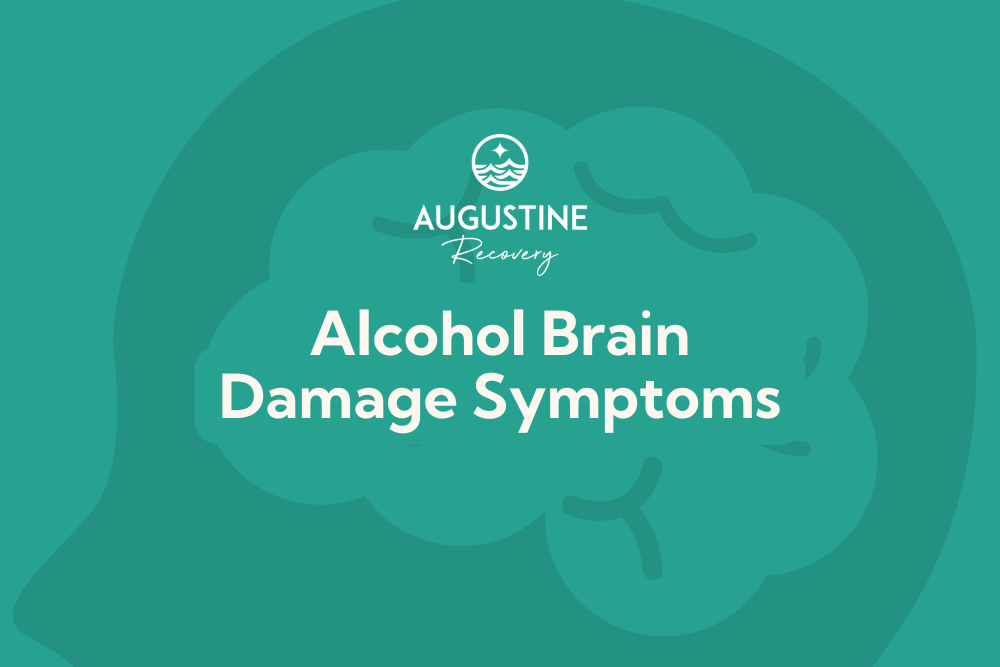Consuming any amount of alcohol has both physical and psychological effects on the body. From dizziness and nausea to confusion and impaired decision-making, this substance impacts how a person interacts with their environment. More often than not, this results in unwanted symptoms that last long after they have their last drink of the night. However, the long-term ramifications can be some of the most alarming. Research shows that excessive use of the substance can result in symptoms of brain damage, and the symptoms of this are commonly debilitating.
How Alcohol Affects Brain Functioning
In the short term, alcohol impacts the brain’s ability to process and interpret information. Excessive drinking is linked to poor decision-making because a person’s brain is not operating at full capacity. Neurons aren’t firing as quickly, making it difficult to think about the potential consequences of their actions. This substance is also a depressant, meaning that consuming the substance slows thinking and emotions. This makes a person feel more tired and can increase negative thoughts and feelings. While these effects typically wear off after a few hours, a pattern of drinking can result in permanent alcohol brain damage symptoms.
Brain Damage Caused by Alcohol
A person who regularly drinks, especially in large quantities, is more susceptible to having irreversible cognitive impairment. Other factors that increase the risk of lasting brain damage include:
- Age when they started drinking
- How long the person has been consuming alcohol
- Genetic influences and family history of substance use disorders
- Overall health
Alcohol brain damage can occur outside of these risk factors, especially if someone binge drinks. Binge drinking is qualified as consuming five or more alcoholic beverages on one occasion. Because the human body cannot process these high quantities in such a short period of time, the resulting effects are amplified. This means that a person can experience permanent damage more quickly because of how much of the substance they are putting into their body.
Alcohol Brain Damage Symptoms
The long-term consequences of drinking on the brain primarily include memory, cognitive functioning, and motor control. As a person continues this habit, the receptors in the brain fire more slowly, resulting in difficulty performing mental tasks. Alcohol can block neural pathways, making it more difficult for parts of the brain to communicate with each other. Alcohol brain damage symptoms* include:
- Difficulty remembering facts, dates, names, or events
- Inability to focus for even short periods of time
- Challenges in carrying on a conversation
- Forgetfulness
- Lack of physical stability (stumbling, difficulty holding objects, inability to control movements)
- Difficulty sequencing tasks
*These symptoms are not an exhaustive list, and you should always consult a medical professional if you notice a change in any type of cognitive functioning.
Impairments in brain function may be indicative of an underlying neurological disease. The most commonly diagnosed brain disorders related to excessive drinking are:
- Wernicke-Korsakoff Syndrome
- Neuropathy
- Myopathy
- Fetal Alcohol Syndrome
- Dementia
Daily substance use and drinking in large quantities increase the risk of these diseases, but reducing consumption can decrease their impacts.
Help for Excessive Alcohol Consumption
Alcohol use disorders are the most commonly diagnosed substance use disorders in the United States. Because the substance is widely accepted, people start drinking at a young age and continue throughout adulthood. This can create a higher tolerance and dependence on the substance. The long-term consequences of this are alarming, but there’s hope if you are struggling with excessive drinking or symptoms of alcohol brain damage.
At Augustine Recovery, we provide a structured yet compassionate environment for you to heal from your addiction. Our residential treatment program creates a community of support free from the distractions of the outside world. We understand there are multiple components to addiction, so we offer trauma-focused and dual diagnosis treatment to aid in your recovery. If you’re in need of further support for an alcohol addiction, contact our Florida treatment center today.
References:
Sullivan, E. V., Harris, R. A., & Pfefferbaum, A. (2010). Alcohol’s effects on brain and behavior. Alcohol research & health : the journal of the National Institute on Alcohol Abuse and Alcoholism, 33(1-2), 127–143.
National Institute on Alcohol Abuse and Alcoholism. Alcohol Research & Health, “Alcoholic Brain Damage” (Vol. 27, No. 2, 2003).





